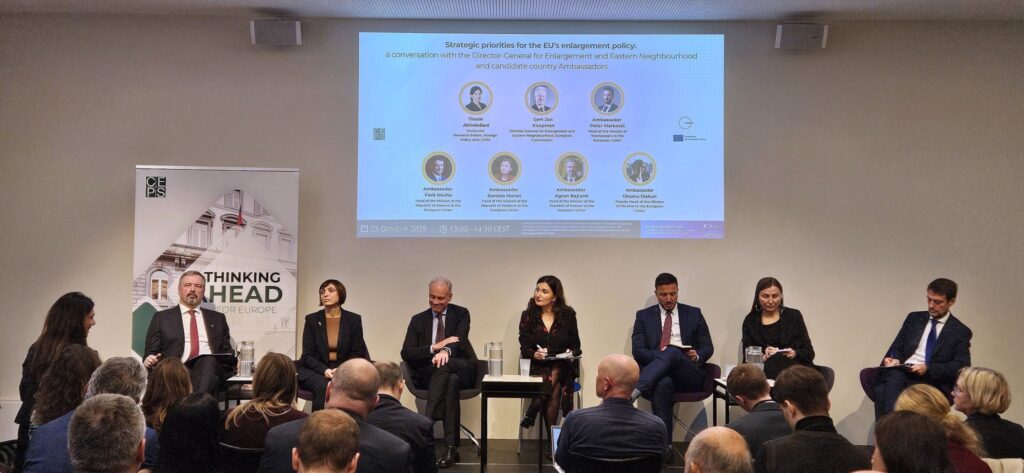Brussels, 23 October, 2025 — In a rapidly evolving geopolitical environment, EU enlargement has once again become a strategic imperative for Europe’s security, stability, and global standing. Ahead of the European Commission’s publication of its annual enlargement package, as part of the REUNIR project, the Centre for European Policy Studies (CEPS) hosted a high-level discussion on “Strategic Priorities for the EU’s Enlargement Policy.”
This event was organized within the framework of the EU Enlargement Forum, the European Commission’s flagship initiative to elevate the conversation on EU enlargement as a shared political, societal, and generational project. The renewed momentum for enlargement is a cornerstone of the 2024–2029 European Commission strategic vision. Enlargement is central to the EU’s ability to project stability, prosperity, and democratic values beyond its borders, and within. It reinforces the Union’s strategic interests, supports economic growth and competitiveness, strengthens energy security, and anchors reforms in governance and the rule of law. The EU is actively engaging the most ambitious enlargement agenda in over a decade. For the first time in a generation, the prospect of a bigger Union is within reach.
The event brought together Gert Jan Koopman, Director-General for Enlargement and Eastern Neighbourhood at the European Commission, alongside ambassadors from current and potential candidate countries: H.E. Petar Marković (Montenegro), H.E. Ferit Hoxha (Albania), H.E. Daniela Morari (Moldova), H.E. Agron Bajrami (Kosovo), and Deputy Ambassador Oksana Diakun (Ukraine).
Moving beyond a purely technical assessment of progress toward the EU acquis, the discussion addressed the broader strategic and geopolitical dimensions of enlargement. Speakers reflected on the shared objectives that drive the process: strengthening European security, promoting economic resilience and prosperity, and enhancing the EU’s global influence in an increasingly competitive international landscape.
Ambassadors from the candidate and aspirant countries presented their national priorities and reform commitments while emphasizing the transformative impact of the EU accession process on governance, economic development, and regional cooperation.
The event drew strong engagement, with approximately 130 participants attending in person and 146 joining online, reflecting growing interest from policymakers, academics, and civil society in shaping the future of EU enlargement.
Concluding the session, participants agreed that enlargement must remain a strategic investment in Europe’s stability and future, requiring innovative approaches to pre-accession support and institutional reform within the EU itself.
REUNIR extends its appreciation to all speakers and participants for contributing to a thoughtful and forward-looking debate.
In case you missed the event, we invite you to watch the recording here: Strategic priorities for the EU’s enlargement policy: a conversation with the Director-General for Enlargement and Eastern Neighbourhood and candidate country Ambassadors

